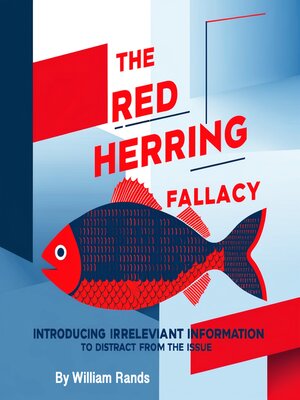The Red Herring Fallacy
audiobook (Unabridged) ∣ Introducing Irrelevant Information to Distract from the Issue
By William Rands

Sign up to save your library
With an OverDrive account, you can save your favorite libraries for at-a-glance information about availability. Find out more about OverDrive accounts.
Find this title in Libby, the library reading app by OverDrive.



Search for a digital library with this title
Title found at these libraries:
| Library Name | Distance |
|---|---|
| Loading... |
The Red Herring Fallacy is a common and effective tool for diverting attention from the main issue in an argument. It occurs when irrelevant information or topics are introduced into a discussion, leading the audience away from the core subject. The name "red herring" originates from an old English practice of using smoked fish to distract hunting dogs from a scent trail. In the context of logical reasoning, the concept is metaphorical, describing tactics that mislead or confuse.
At its heart, the Red Herring Fallacy exploits our natural tendencies to become sidetracked by emotionally charged, intriguing, or seemingly relevant details. The distraction can take many forms: an unrelated anecdote, a tangential issue, or even an outright falsehood designed to provoke. These diversions can be deliberate, crafted to manipulate the audience, or unintentional, stemming from poor argumentation or misunderstanding. Regardless of intent, the result is the same—a shift in focus away from the actual matter at hand.
This fallacy is especially prevalent in public debates, political discourse, and media narratives, where the stakes are high, and the ability to persuade can hinge on controlling the conversation. Politicians might use red herrings to avoid answering tough questions or to redirect criticism, while advertisers employ them to create appealing but irrelevant associations with their products. In our personal lives, we often encounter red herrings during arguments with friends or family, when emotions can override reason and lead to unproductive detours.







